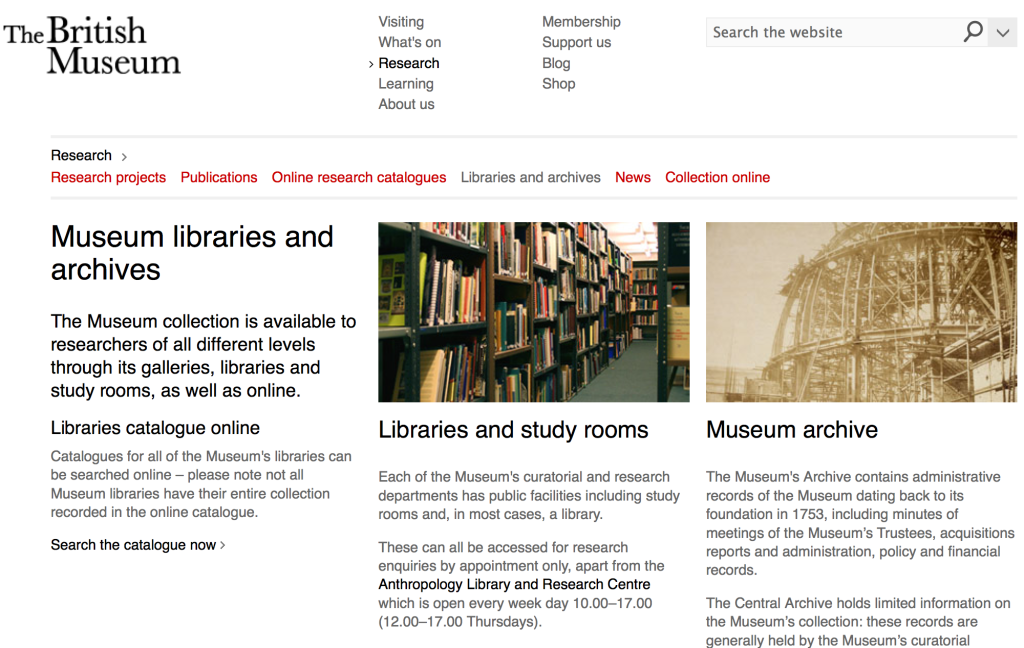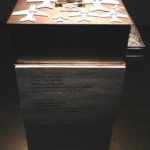
Screen Shot of the British Museum’s Libraries and Archives webpage, with information about the Central Archive.
Using Museum Archives
British Museum
Great Russell Street, London WC1
13 July 2015
The audience was welcomed by the event’s organisers, Laura Carter of University of Cambridge and Sarah Longair of the British Museum, who urged us to join the Museums and Galleries History Group and read Museum History Journal, both of which were new to me.
Francesca Hillier, Central Archivist at the British Museum, began her talk with what I consider a shocking fact, that she is the only archivist employed by the Museum, and went on to describe an institution built on eccentricities, which made me realise (again) that I’m as fascinated by the history of museums as by the objects within them. We heard that the Central Archive holds the deeds for the land and buildings of the British Museum; minutes from Trustees Meetings, since 1753; and internal reports and administrative records. Francesca emphasised the Museum’s “very complicated” history that has led to departments also having archives (perhaps due to their quasi-sovereign power despite name changes and reshuffles). For while Keepers were required to justify collecting activity to the Trustees, they also managed to “slip stuff in”, bought or acquired independently, which meant that record keeping was a hot potato. The hiving off of Museum departments into separate institutions – the Natural History Museum and British Library – has further complicated matters as archival material may have followed the objects, or not.
Continue reading →



